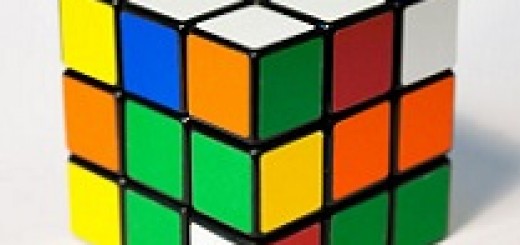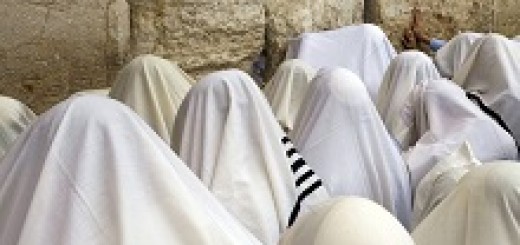By Avner Friedmann
The Midrash[1] describes Moshe and Aaron’s first encounter with Pharaoh: That day was Pharaoh’s birthday. Many kings and dignitaries from the surrounding countries had come bearing gifts in his honor. Moshe and Aaron waited at the door. Pharaoh’s servants entered his chamber and told him about the two elderly gentlemen who were waiting to see him. Pharaoh asked, “Did they bring me presents?” ”No,” replied the servants. “Then let them enter last,” answered Pharaoh.
When Moshe and Aaron finally entered, they approached Pharaoh and said[2]: “So says HaShem, the G-d of Israel, ‘Send out My people, etc.’” Pharaoh replied: “Who is HaShem that I should heed His voice to let Israel go? I do not know HaShem, nor will I send out Israel!” Pharaoh was curious about this god who didn’t even bother to bring a gift. He took out his book that listed all the various gods and deities of different nations. He then turned to Moshe and Aaron and said: “I have gone over the entire list and I don’t see your god amongst them.” They answered, “Fool! The gods you are referring to are dead, but HaShem is a living G-d, He is the King of the world.”
Pharaoh retorted with a series of questions: “How old is he? How many cities and countries has he conquered? When did he become god?” Moshe and Aaron replied, “His might fills the world. He existed before the world was created and will exist forever. He made you and gave you the breath of life.” Pharoah asked, “What are his deeds?” They replied, “He stretches heaven and earth, forms mountains, covers the sky with clouds, brings rain, grows the grass, nourishes the fruits, answers the needs of the animals, forms fetuses in their mother’s wombs, delivers babies, establishes kings and removes them.”
Pharaoh responded abruptly, “Liars! I am the master of the world! I created myself and the Nile.” This is as scripture states that Pharoah said,[3] “The Nile is mine and I made myself.” The Holy Ohr HaChaim comments[4] that Pharaoh was defiant and said, that “Even if HaShem is mighty, He is not mighty enough that I must obey Him and send out an entire nation of slaves.” He dismissed Moshe and Aaron saying,[5] “Go to your duties” and don’t bother me.
The Midrash concludes that, HaShem responded, “Wicked one, I swear to you that in the end you will admit that you are wrong and let My people go.” Indeed, after the affliction of the first seven plagues, Pharaoh contritely confessed,[6] “HaShem is the righteous One and I and my people are the wicked ones.” Ultimately, after the tenth and last plague, he summoned Moshe and Aaron and pleaded with them to take their nation and leave, as it is written[7]: “Rise up, go out from among my people.”
The Holy Zohar[8] asks, “Pharaoh was an intelligent man. How could he not know of HaShem? Did not Pharaoh state about Yosef,[9] ‘He is a man in whom is the spirit of Elokim.’ The Zohar explains that Pharaoh knew the name Elokim (אלקים) but he could not relate to the name יקוק (HaShem). That was too difficult for Pharaoh to accept.
The word Elokim describes G-d as He is concealed and acts through the forces of nature. Moshe however came to him in the name of HaShem, Who is above nature and transcends time and space, as explained that,[10] “He is the original Being, Who is without beginning or end; the Creator Who brought everything into existence and continues to sustain and personally supervise everything. The One Who’s true nature cannot be understood altogether[11]. He is the true cause of everything. The only reason anything else exists is because at every moment He wills it to exist. The only thing we can say about Him is that He is an absolute unity and that His essential being is absolutely simple and perfect in every possible way”.
Pharaoh had no problem relating to Elokim, because when it came to utilizing the forces of nature to his benefit, Pharaoh was the expert. This included harnessing the powers associated with astrology, the zodiac, demons and other negative spiritual forces. As a worshiper of idols, Pharaoh’s shortcoming was that he attributed independence to these forces. The Egyptians could not accept that everything is by Divine supervision and believed that it all was according to the natural order of astrological forces. Because of this, Pharaoh could not fathom that the forces of nature are merely messengers of HaShem’s will and that, in reality, there is only one source Who powers everything. Moreover, he could not align this truth with his claim of being a god himself.
The message of the Torah is eternal and relates to ourselves as well. We all have a little Pharaoh in us, so to speak, which is defiant and tends to reject whatever we cannot see with our eyes, hear with our ears or rationalize in our mind. However, the Torah teaches us how to conduct ourselves in a manner which transcends our nature and limitations.
The Zohar states that the knowledge of HaShem was revealed only to Israel, as it is written[12]: “For HaShem’s portion is His people, Yaacov is the measure of His inheritance.” We are taught that only the Jewish soul, which comes from a very lofty level and is, “literally a part of G-dliness,” can sublimate itself to HaShem’s simple Oneness and to the fact that “Hashem is Elokim.” We declare this twice daily when we recite “Shema Yisrael, HaShem Elokeinu, HaShem Echad – Hear O Israel, HaShem is our G-d, HaShem is One.”
It was then,[13] when HaShem wrought wondrous miracles in Egypt and during the subsequent exodus, that the Jews became aware of HaShem. Ever since then, every year on Passover, we renew this awareness through the recitation of the Haggadah, when we state, “In every generation, each person must see himself as if he personally has come out of Egypt.” Through this we recognized that in reality there is no difference between the natural and the supernatural; that in reality they are all HaShem’s miracles! The Ramban (Nachmanides) wrote[14] that in order to keep this experience at the forefront of our consciousness, HaShem commanded us to write about it in the Tefillin that we don, in the Mezuzahs that we affix to our doorposts, and to declare it twice daily in the Shema.
Fifty days after the exodus, the Jewish people experienced this awareness on a level never before experienced before and never experienced since, as it is written,[15] ”You have been shown to know that HaShem, He is Elokim! There is nothing besides Him!” Ultimately, the true level of a Jew is measured by the extent of this awareness. Our task is to internalize this on a constant and personal basis, as the Torah instructs us,[16] “You shall know this day and set it upon your heart that HaShem, He is Elokim in heavens above and upon the earth below, there is nothing else.”
May we soon merit the complete, permanent and ultimate revelation of HaShem, through our righteous Moshiach, Amen.
[1] Tanchuma Vaera 5.
[2] Shemot 5:1-2.
[3] Ezekiel 29:3.
[4] Shemot 5:2.
[5] Shemot 5:4.
[6] Shemot 9:27.
[7] Shemot 12:31.
[8] Mikeitz 195a.
[9] Shemot 41:38.
[10] Rabbi Moshe Chayim Luzzatto in The Way of G-d, Ch. 1.
[11] “No thought can grasp Him at all”, Patach Eliyahu, Hakdama Tikunei Zohar, 17a.
[12] Devarim 32:9.
[13] Likutei Halachot, Pesach 9.
[14] Rav Moshe Ben Nachman (1194-1270) at the end of Bo.
[15] Vayikra 4:35.
[16] Vayikra 4:39.






















